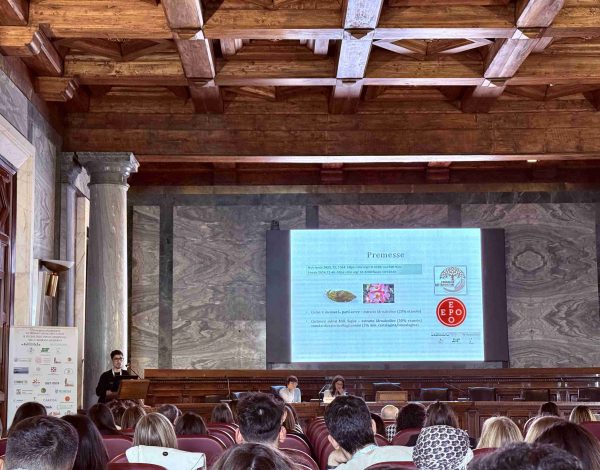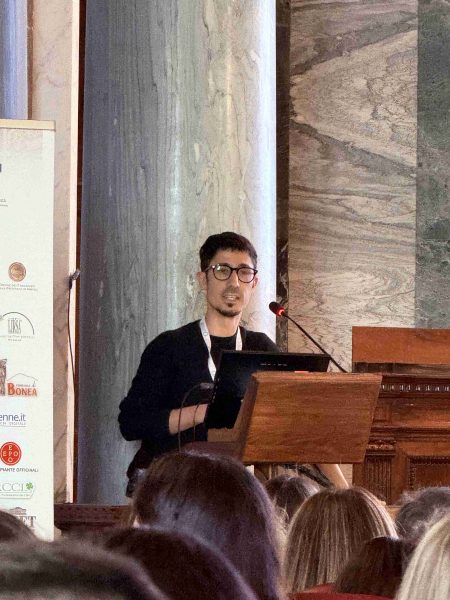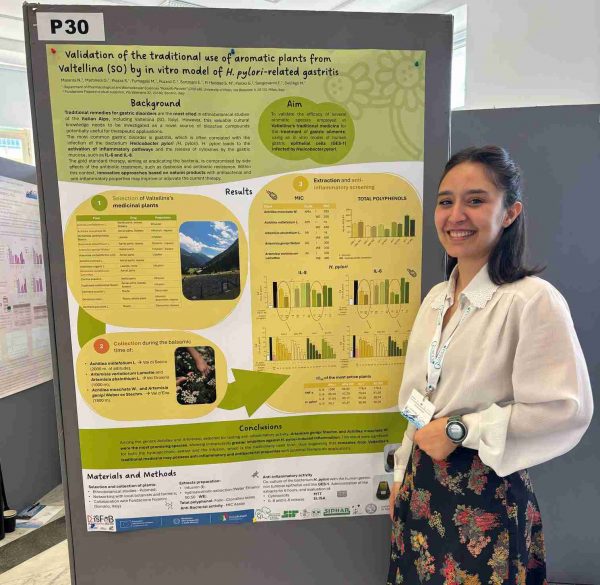From 10 to 12 April 2025, the Federico II Congress Centre in Naples hosted the 2nd Intersociety Congress on Plant Products for Health, entitled “The Role of Medicinal Plants in Modern Medicine”. The event, jointly organized by five important Italian scientific societies – the Italian Society of Pharmacognosy, the Italian Society of Pharmacology, the Italian Society of Phytochemistry, the Italian Society of Phytotherapy and the Italian Botanical Society (Officinal Plants Group) – represented an opportunity for interdisciplinary discussion on the growing use of plant products in the therapeutic and health fields.
The congress was attended by numerous experts, researchers and representatives of the sector, who discussed topics such as pharmaceutical botany, phytochemistry, pharmacology, phytotherapy, nutraceuticals and health product technology. The sessions were divided into oral communications, poster presentations and round tables, promoting dialogue between academia and industry. The presence of several companies in the sector further enriched the debate, highlighting the importance of an integrated supply chain to guarantee the quality and efficacy of plant products intended for health.
The Laboratory of Pharmacognosy participated in the conference by presenting two of its researches through an oral communication and a poster.
Dr. Stefano Piazza, with the oral communication entitled “In vivo evidence of Cistus (Cistus x incanus L.) and Chestnut (Castanea sativa Mill.) extracts as gastroprotective nutraceuticals”, presented the results of the study carried out in an in vivo model of gastric ulcer on the gastroprotective activity of Cistus and Chestnut extracts, administered both in combination and individually.
“Validation of the traditional use of aromatic plants from Valtellina (SO) by in vitro model of H. pylori-related gastritis” è il titolo del poster presentato dalla dott.ssa Nicole Maranta. Il poster ha mostrato i risultati preliminari dello studio, attualmente in corso, che mira a validare l’efficacia di alcune specie aromatiche della Valtellina, in particolare dei generi Achillea e Artemisia, in un modello in vitro di cellule epiteliali gastriche umane (GES-1) infettato da Helicobacter pylori, batterio che causa comunemente la gastrite. Achillea moschata e Artemisia genipi sono emerse come le piante più promettenti; le ricerche proseguono per identificare i composti attivi e il loro meccanismo d’azione.
The conference program and abstracts are available at this link



